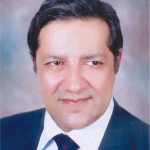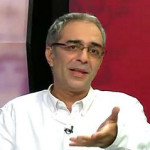The Big Question
By Newsline Admin | People | Society | Published 9 years ago
Are the best things in life free?
Sherry Rehman is a senator, and a former diplomat, minister and journalist.
“The short answer is no, they are not.
The conventional wisdom that the good things are free does of course hold in a literal sense, but it’s a question of how you value those things. My view is that money cannot possibly be rated as the only currency we exchange for value. Time seriously rivals money for that currency, and it is entirely finite, so the big-ticket items on my index for wellbeing, like knowledge, freedom, love, and health often need to be earned with a gradient of right choices. Some people are just born with optimal health, wisdom and other ostensible riches, but most people have to earn them, or work for them. And even the overtly privileged among us have infamous backstories of private challenges or deprivations a credit card simply cannot buy. So yes, while the luxury industry offers a smoother ride and will never go away or stop pleasing, the stuff of legendary achievement almost never comes from proximity to buyable leisure. Money is just one measure of success or value, but to grade it as the only one is so last century! In fact, after a certain amount of capital accumulates, the human urge to give it away is a mark of cognitive health.
How do we earn fulfillment? Can contentment ever be quantified? Is the light streaming through my window, or heart-stopping beauty not free? It may be, but it will be impermanent like most external markers of human happiness, so real fulfillment can only come from internal conquests of the uneven play between our less fallen angels.
Even the ability to concentrate, meditate, focus has to be learned, therefore earned. Wordsworth would disagree, I know. But his seemingly effortless poetry too needed the affirmation of society, which had to be earned. His innate talent needed the toil.
I can say the air on the beach is free, or the daffodils on the mountain grow wild, but my ability to spring for the time absorbing their emotional enrichment is related directly to a choice about what I give up in terms of time spent elsewhere and other commitments on my beanpole of daily ambitions. Time and character are both units that are non-fungible in many ways, unlike most types of money. Habits become character, and character defines how we navigate free will and destiny.
So no, most of the big things in life have to be earned. Just like real love, if you don’t confuse it with adolescent chemistry, or a parent’s hardwiring for offspring-love, it has to be earned. Or, at least that’s what I tell my husband!”
Deepak Perwani is a fashion designer.
“If the best things in life were really free, we wouldn’t be paying for water. And from the way things are, soon people might have to start paying for air too. Love and joy are human emotions which you can’t attach a price to. But when we look at consumerism in the here and now, we learn even these emotions are for sale.
Gone are the days of ‘one love, one life’ and the hippie 1970s when everyone was carefree. The new digital age where you can buy love online, among many other things, has isolated us. We hide behind monitors and keyboards, anonymous, isolated and insecure, pretending to be someone we are not. The word free today really is just a perception — nothing is free. To quote a common American saying, ‘money talks and bullshit walks.’
This is the new world order.”
Tariq Rangoonwala is a businessman.
“The best things in life are free! To begin with life itself is free as the parent(s) bear the burden of one’s birth and no fee was paid for life — at least not by the one born. Civility is free if one bothers about it as one should, for it reciprocates. Basic elements of nature, though taken much for granted and can show anger on occasion, are mostly free. Thoughts are free, dreams are free, modesty is free, ideals are free, even having idols is free. What makes things free are those which do not offend nature and fellow humans. Perhaps the best things that are free are a clean conscience, good intentions and sincere goodwill. Idealistic? Why not? Idealism is also free.”
Meesha Shafi is a singer, actor and model.
“The best things in life are definitely free. And they all begin and end with ourselves. Positivity, love and gratitude are some of the best things one can strive to achieve as life goes by. It is important to remember that what we give out to the universe is what we receive in return. The more you love and take care of yourself, the more love and kindness you have in you to pass on.”
Zarrar Khuhro is a journalist and talk show host.
“Well, in order to answer that question in an honest and hopefully non-clichéd way, one will first have to answer the question: ‘What is best?’ This is possibly apocryphal, but the story goes that when Genghis Khan asked and then answered this question, he said what is best is “to crush your enemies, see them fall at your feet…and to hear the lamentation of their women.”
All of this certainly came at great cost to those who afforded him this pleasure, and even for the Mongols themselves, the cost of these pleasurable campaigns was considerable, though the gains accumulated as a result were greater still. So the answer to the question really depends on one’s personal preferences and view of what is ‘best’ to begin with.
For me, that tends to vary depending on what’s going on in my life at any particular point. Certainly, while on some days a gentle breeze on a cloudy day may be best, on others overpriced sushi may be the only thing that fits the bill. While I’d love to take the inspirational road and answer with a resounding ‘yes’, that would be ultimately dishonest of me. Sometimes the best things in life come at a great cost, to yourself and to others.”







